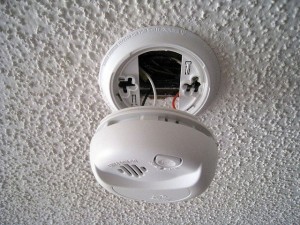Can A Landlord Be Responsible For Tenant/Visitor Injuries?

If you rent your home or apartment, you likely deal with a landlord. Your landlord has many duties, one of which is being responsible for maintaining the property, ensuring the area is safe and kept in good repair. In the event that you or a visitor get injured on the premises, it’s possible that your landlord could be held liable for the incident. In order for that to happen, however, it’s your duty to prove your landlord’s negligence.
What is Negligence?
Negligence is the key factor in holding landlords liable for tenant or visitor injuries. When someone acts negligently, it means they caused unintentional harm to another person. In this case, unintentional harm could come as a result of the landlord failing to maintain a certain standard of care of the rental property.
Typically, courts try to determine if a landlord delivered a “reasonable” level of care to the tenant. They’ll take into consideration what the average landlord would have done, and then judge whether or not the landlord in question showed the same amount of care. Note that a child’s involvement might elevate the standard level of “reasonable” care. Courts take into consideration that children are generally less able to identify and avoid danger.
How Can a Landlord Be Held Liable for a Tenant or Visitor Injury?
In order for your landlord to be held liable for your injury, you must first prove negligence. To do that, you must show that:
- You are genuinely injured
- The injury occurred in an area of the premises that your landlord is responsible for maintaining—this usually includes common areas, not the tenant’s unit
- Your landlord failed to take reasonable action that could have prevented your injury
- The cause of the injury (e.g. hazardous building conditions) would not have been unreasonably expensive or difficult to repair or, at the very least, you could have been warned about the hazard
- Your injury was the most likely result of the landlord failing to take action
- The landlord’s inaction caused your injury
What About “Negligence Per Se”?

It’s possible that your landlord could be deemed negligent without need for the additional proof above. Known as negligence per se, a landlord can be held liable for a tenant injury if he or she violated a law that was put into place to protect tenants from injury.
Here’s a simple example. Landlords in Pennsylvania are required by law to equip each property with smoke detectors. If your landlord failed to install smoke detectors and you were injured in a fire, the landlord would be liable for that injury. Because a law was violated, there’s no need to prove that your landlord failed to act reasonably.
Criminal Acts
A negligent landlord could be held liable for more than physical injuries. It’s possible to prove that criminal acts such as a burglary happened as a result of a negligence. For example, a landlord should reasonably assume that doors or windows without locks leave tenant susceptible to break-ins, and that assaults often take place in poorly lit common areas.
What Kind of Damages Can You Receive?
If you can prove negligence and your landlord is held liable for injuries, you can sue for a variety of damages, such as:
- Pain and suffering
- Emotional distress
- Medical bills
- Disability
- Lost earnings
In the event that you’re injured in a common area of your rental property, there’s a very good chance you can seek action against your landlord for failing to maintain the area. Contact your attorney following the incident to review your case, and he or she will be able to help you choose the best course of action.
